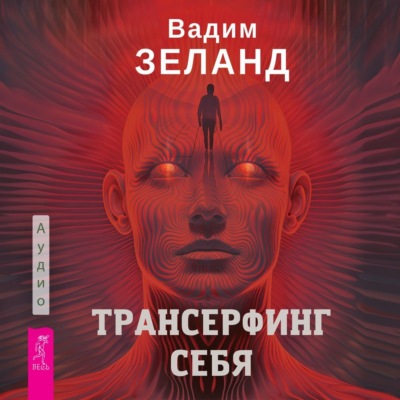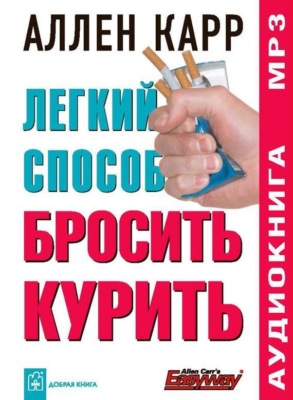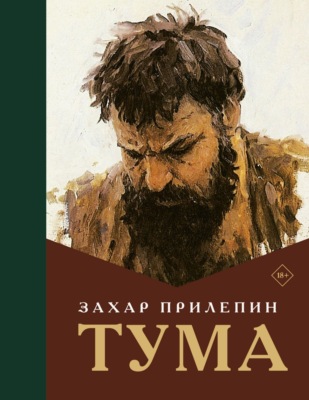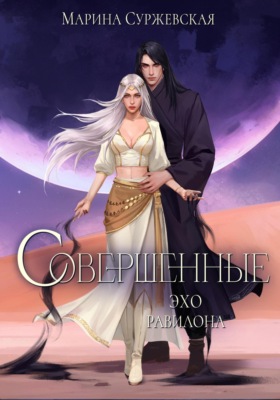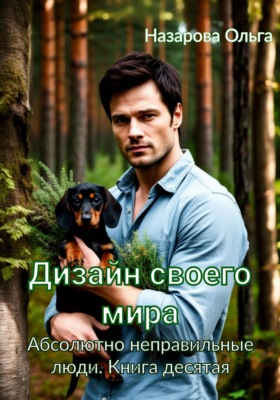Buch lesen: "The Mysteries of Angel Butte"
There’s always one case…
The moment police captain Colin McAllister sees her on TV he knows. She may call herself Nell Smith, but she is Maddie Dubeau—the girl who went missing from Angel Butte, Oregon, years ago. She’s haunted Colin, and now the adult version of her is so captivating, he can’t stay away. He wants to help her recover her memories—even solve her case—without crossing a professional line.
But distance becomes impossible when the threats against her escalate. It’s clear someone is determined that Nell never remembers what happened to Maddie. Colin must keep her safe so that he can finally bring her home…to his home.
She wasn’t safe
Somebody had recognized her. If this Captain McAllister was determined enough, he could find a way, legally or not, to get her fingerprints. The life Nell had built so carefully could collapse, like a house carried down the crumbling bluff by a mud slide.
A terrible sound escaped her, a shuddering cry.
I have to run. I can’t be here when he comes looking for me again. I can’t.
She sank down, right there inside the door, her back to it, and let her purse and the books fall. Her breathing was loud in the silent apartment.
What if he meant it? What if she could trust him?
What if she couldn’t?
Nell drew her knees up, hugged herself tight and rocked.
The most insistent voice in her head was the one that whispered, Am I Maddie?
Things are not as they seem in Angel Butte, Oregon. Read on to find out how Colin McAllister can help Nell unravel the mystery of who she is in this first book of a captivating new series from reader favorite Janice Kay Johnson!
Dear Reader,
Why do some places feel like home and others never do? I lived in central Oregon for only three years when I was a child, but writing this trilogy, The Mysteries of Angel Butte, felt like a homecoming to me. I’ve only been back to Bend, where my family lived, a few times as an adult, but the first thing I always notice is the smell. I think it might be the ponderosa and lodgepole pines, maybe the volcanic soil, but that part of Oregon smells different to me than anywhere I’ve ever been. I can roll down the car window and feel amazing, just breathing it in.
My memories of those years are vivid, too. My dad was a college professor who worked as a naturalist during summers. He set up the first interpretive center at Lava Butte, a volcanic cinder cone not far from Bend. Like Maddie, the heroine in this first book, I’d often go to work with him during the summer. I was happy feeding the chipmunks that lived in the crater and looked pretty darn healthy considering all the stuff tourists fed them! My father was a runner; we lived only a few blocks away from Pilot Butte, the smaller cinder cone that is right in the middle of Bend (needless to say, the model for Angel Butte in my stories), and Dad ran to the top nearly every day. Quite often, I’m not that interested in the setting for my books, but this was different from the very beginning. The town may be fictional, but I was writing about home, in a very real sense.
Of course, to my recollection no skeletons were recovered from beneath the cinders at either Lava Butte or Pilot Butte while we lived there, but think what a great place to hide a body that would be! Both the first two books in this trilogy have characters haunted by their memories of growing up in this town. Tapping into those memories turned out to be easier than I could have imagined, even though they were far darker than mine. I’d say enjoy your visit to Angel Butte—but really I’d like to keep you awake tonight, wondering if you dare go home….
Best,
Janice Kay Johnson
PS—I enjoy hearing from readers! Visit me on Facebook or write me c/o Harlequin, 225 Duncan Mill Road, Don Mills, ON M3B 3K9, Canada.
Bringing Maddie Home
Janice Kay Johnson

ABOUT THE AUTHOR
The author of more than seventy books for children and adults, Janice Kay Johnson is especially well-known for her Mills & Boon Superromance novels about love and family—about the way generations connect and the power our earliest experiences have on us throughout life. Her 2007 novel Snowbound won a RITA® Award from Romance Writers of America for Best Contemporary Series Romance. A former librarian, Janice raised two daughters in a small rural town north of Seattle, Washington. She loves to read and is an active volunteer and board member for Purrfect Pals, a no-kill cat shelter.
MILLS & BOON
Before you start reading, why not sign up?
Thank you for downloading this Mills & Boon book. If you want to hear about exclusive discounts, special offers and competitions, sign up to our email newsletter today!
Or simply visit
Mills & Boon emails are completely free to receive and you can unsubscribe at any time via the link in any email we send you.
Contents
Prologue
Chapter One
Chapter Two
Chapter Three
Chapter Four
Chapter Five
Chapter Six
Chapter Seven
Chapter Eight
Chapter Nine
Chapter Ten
Chapter Eleven
Chapter Twelve
Chapter Thirteen
Chapter Fourteen
Chapter Fifteen
Chapter Sixteen
Chapter Seventeen
Excerpt
PROLOGUE
SHE AWAKENED TO darkness, pain and nausea. Had she fallen? Somehow she knew she wasn’t in bed. She reached out blindly to explore and found an unyielding surface close above her. Movement and a rumbling vibration made her body sway from side to side. She flailed all around her, finding the walls of a box. Terror swelled in her, more powerful than the nausea.
I’m in a coffin. They’re burying me alive.
Before she could scream and hammer on the lid, consciousness slipped away.
The next time she surfaced, it was to the taste of bile in her mouth and the awareness that her stomach was heaving. Too late to get up and run for the bathroom. All she could do was fling herself onto her side before throwing up. Her head hurt so bad. She banged into something as she rolled. And it was dark. So dark. The surface she lay on was hard. Not bed.
Consciousness came and went a couple more times, her awareness fleeting, her thoughts chaotic. Once she surfaced to an awful smell, then to the realization that her cheek was resting in something sticky. Her own vomit. With a cry she hurled herself back and whacked something behind her.
Panic rose in her chest. Why can’t I see?
In her peripheral vision, there was a flash of red. She tried to turn her head to see what it was and flinched. Only one eye would open. She groped for her face and found her eyelid crusted shut. With something. The smell was bad, but it didn’t matter, not when she hurt so much. She closed her other eye and gave up.
Finally she awakened and remembered the other times. Not a coffin. Her questing fingers found cold metal, with strange dips and curves and even a few holes. She succeeded in rolling all the way over and almost passed out again. Her head wanted to explode. Blood, she thought. It was blood crusting her eye. I hit my head.
She’d become used to the vibration and the sounds that might have been occasional gusts of wind. Not wind, she finally recognized: cars passing on a highway. Her mind fumbled for understanding. She was in a car. Locked in the trunk of a car that was moving. Bewildered, she turned the notion over and over. Not knowing why this was so wrong, but also confused about where she should be. She couldn’t think. It was because of the headache.
Suddenly she slid sideways and barely managed to get an arm up to keep her head from hitting the side wall. She was being pitched backward despite herself. Oh, gross, into the vomit. The car was braking, that was it. Fear rose like the contents of her stomach had earlier, clogging her throat. Once the car stopped, she wouldn’t be safe at all.
But it had stopped. The engine turned off. She heard a door open, then slam. She squeezed her eyes shut. If she pretended she was still unconscious...
Footsteps came close and she flinched, but then they began to diminish. The driver must be walking away. She strained until she didn’t hear the footsteps at all, until the silence was absolute.
Then, frantically, mindlessly, she shoved upward with all her strength, despite knowing the trunk lid wouldn’t give way. Stupid, stupid. Think. Just like that, she had a picture of herself—it must be her—leaning into an open car trunk. She could smell fresh lumber, hear a man’s impatient voice.
“What are you waiting for? Push down the backseat.” Because she wasn’t very big, she’d had to all but crawl into the trunk before she could reach the latch to yank, then push the back of the seat until it flopped forward.
Panting now, she groped above her for a latch. Please, please, please let this car have seats that fold down. Her fingers closed around a familiar, plastic T-shaped piece dangling at the back of the trunk and she pulled. If there were other people in the car... If the driver hadn’t been alone...
There was a clunk and a sliver of light. She pushed, and half the seat folded down—not the whole one. It wasn’t what she expected. This wasn’t the car she remembered, then.
Through the opening and the windshield, she saw that it was night outside, and that there were bright lights. No one was in the car with her. Whimpering, she crawled right through the vomit and then the hole into the passenger compartment. Opened the back door and almost fell out onto pavement. She stumbled into a curb and lifted her head to see a gas pump. She wanted to run, run, run, but an inner voice told her to push the seat back in place, shut the car door. Maybe the driver wouldn’t know he’d lost her. While she carefully closed the door, the sound was so loud she cringed and crouched behind the fender, holding her breath to listen. But she heard no footsteps, no roar of anger. The car sat alone at the pumps.
She crept around the trunk and saw the mini-mart with a brightly lit ARCO sign. He must have gone inside to use the bathroom or buy something.
Run, run, run.
This time she did, her footsteps slapping on the pavement. Weaving like a drunk on numb legs, she fell once to her knees and skinned her palms but was barely slowed. Still no shout of alarm. She reached the windowless side of the gas station and kept going. Darkness lay beyond. If there was a moon, it must be low or behind clouds. The pavement gave way to dirt. She slammed into something rough, something that scratched at her face and had arms with clawlike hands.
Scrambling backward, she saw enough of an outline to understand. A tree. Her eyes were starting to adjust and she saw more trees, rows of them. Small, sculptural ones. An orchard maybe. She ran down the aisle between rows. Ran and ran, then cut between rows and ran some more, until the lights at the gas station were far away. Then, her stomach heaving again, she dropped to the ground and tried to shrink herself to nothingness so that she would fit behind the narrow bole of a tree. There she cowered, listening. Shivering. Shuddering as cold crept into her bones. Eventually hearing a car start up and take off. Others passed on the highway. Trucks with their heavier rumble. Vehicles came and went at the gas station. Night became the gray, pale light of dawn that left her feeling terrifyingly exposed. But no one came.
The sun rose until it was high in the sky, but gave little heat. The trees were bare of leaves, which meant it was winter.
Why don’t I know what season it is?
She didn’t know anything. Was afraid to let herself examine why she didn’t. She was nothing but an animal caught far from its burrow, horribly exposed. She was cold. So cold, despite the strange, too-large shirt she wore. At last it wasn’t so much courage as desperation that had her creeping slowly back toward the gas station and the highway. The worst was crossing the last open stretch onto pavement. The restroom doors were on this side. Hiding behind a big, white propane tank, peeking around it every time she heard footsteps, she had to wait almost forever before a woman came out of one of the restrooms and walked away, key dangling from a hand, without looking back. The door was just swinging shut and she raced for it. It was slamming when she slipped her fingers into the crack just in time. This hurt barely registered.
Hurry, hurry.
She hardly even examined herself in the mirror, beyond recoiling from the blood and vomit matting her hair and dried on her face and wondering why she was wearing this man’s shirt/jacket thing that was as long as a dress. With liquid soap, hot water and paper towels she scrubbed desperately at herself. She managed to get most of her head under the stream of water and used the hand soap to wash her hair, too. It hurt, hurt so bad, and the water kept running red no matter how many times she rinsed. She unbuttoned the olive-green shirt with an embroidered patch on the shoulder and scrubbed the blood and vomit off it, too. It had to be military, but it looked old, like somebody had worn it forever. Not her, she thought. Right now, it was all she had to wear, except for the thin cap-sleeved T-shirt beneath, so she wrung it out then put it back on wet. She’d be even colder, but that had to be better than being bloody and stinking with puke. Plus, wearing the shirt felt...necessary. Like it meant something.
The face she finally saw looked shell-shocked, but okay. Skin dead-white, her eyes dilated, but no bruises showed. The wound was on the right, near the back of her head. Touching it once had hurt, so she wouldn’t again.
She cracked the bathroom door enough to see that there was no one in sight, then rushed back behind the building.
Now what?
A thought shaped itself. She could go inside and ask for help. The clerk would call the police. Somebody, somewhere, would know where she belonged.
A whimper slipped out and she looked down to see that she was hugging herself again, shaking. There were faces, the same man she’d remembered telling her to put down the seat. And a woman, too, whose stare was so icy that the girl had shriveled and crept away.
No, no, no. If they were her family, she couldn’t go back to them.
Then...I must be running away. She calmed as she accepted a truth, something she did know. They had been cruel to her...or something. She rocked herself, trying to remember, and couldn’t. But she knew they weren’t to be trusted, not those people, whether they were her family or not.
For most of the day, she watched from behind the propane tank as cars and trucks arrived and left. Finally a U-Haul truck pulled in. She heard the metal scrape of the rear door being lifted and crept forward to watch as the driver checked the load. Leaving it open, he disappeared around the side of the truck. She ran again, faster than she’d ever run in her life, slap, slap, slap on the pavement, and slithered into the back of the truck, trying not to make it bounce with her weight. There wasn’t much weight, though, because she was small and skinny. Heart pounding, she lifted a quilted pad and shinnied beneath it, finding herself wedged beside a wooden dresser. Another squirm and she made it behind the dresser. Something—a chair leg maybe—pressed into her back. Then she waited some more, trying not to breathe, until the footsteps came, and the metal door was released to drop, bounce once, then stay down. She heard the man snap closed the padlock, then get in behind the wheel.
Once more, lying on her side in the darkness, she felt the vibrations of an engine and movement. But this time, she tugged the heavy quilt closer, buried her chin inside the collar of the damp shirt, and let the terrible fear slip away. She was...not safe, but safer.
Tears trickled down her cheeks, wetting the hand she’d laid beneath her head. Her last fuzzy thought before sleep claimed her was, I won’t go back, no matter what, even though she had no idea where she was going, and less of an idea where she’d been.
CHAPTER ONE
“SOME BONES HAVE turned up.”
Police Captain Colin McAllister lifted his head. “Bones?”
He’d waved Duane into his office a minute before. Lieutenant Duane Brewer headed Criminal Investigations, which meant that when he wanted a word, it was more likely to be about a corpse than a shoplifter. Still, it had taken Colin a moment to tear his attention from his computer monitor. He’d been trying to figure out how to plug holes in manpower without leapfrogging academy grads, with their shiny new badges, to detective. The problem was becoming chronic, and he knew who to blame. He’d known for ten years where the cancer lurked that was sickening the Angel Butte Police Department. He was just too damned stubborn to jump ship the way the others had.
He saved the work on his computer and leaned back in his leather desk chair, studying the man who’d been his mentor and whom he now outranked.
Fifty-four years old and thickening around the waist, Duane was the quintessential detective: patient, thorough and dogged. A loner, he liked what he did and hadn’t been happy about the promotion to lieutenant. Colin had begged him to take it.
“What’s the story?”
“You know those trees they’ve been taking out in the river park?”
Already feeling apprehension, Colin nodded. The infestation of pine beetles had become obvious when needles turned brown and fell. Some fungus had swept along in the wake of the beetles, taking advantage of the weakened trees. The city parks department had made the decision to cut out the infested ones before they fell in the next windstorm.
“They’re digging out the stumps, where they can get a bulldozer in.”
He knew that, too.
“Pulled one out today and some human bones came with it.”
“Not an Indian burial?”
“No. The foreman’s pretty shaken up. Hasn’t found a skull yet, but there’s a lower jaw. The teeth have fillings in them.” Duane ran a hand through his thinning hair, looking shaken. “Colin, I haven’t been out there yet, but it sounds like this isn’t more than a couple hundred yards from where Maddie was grabbed.”
Maddie Dubeau was Duane’s niece. Frantic at her disappearance twelve years ago, Duane had insisted on taking over the investigation, and nobody had been able to deny him. He’d let Colin, then a young officer who had been first responder, stay involved, going door-to-door with questions and searching the grid. They hadn’t talked about the case in years, but Colin knew that Duane had to be even more haunted by their failure to find her than Colin had been.
His own gaze shifted to a bulletin board where he kept a few photos. Victims whose killers had never been found. A two-year-old beaten to death by her father despite multiple calls to 911 from concerned neighbors, babysitters and medical personnel. Two kids who’d disappeared and never been found. Faces he wouldn’t—couldn’t—forget. Some were personal failures, some were department. He wanted their eyes watching him, even if he didn’t often look back at them.
Madeline Noelle Dubeau’s picture was one of them. It was her last school photo, taken her freshman year of high school. This was more flattering than the one on the learner’s permit he’d found at the scene but had bothered Colin in the same way. In it, she was smiling politely, as though the photographer had insisted, but her wide, cautious eyes weren’t happy. Looking at it, he thought that this was a girl who always stayed a step back, who didn’t expect the best from anyone. Just shy, he’d told himself every time he tried to delve into her secrets, but he couldn’t make himself believe it. He’d never asked Duane, who didn’t like talking about her.
Duane rose and went to the bulletin board, standing with his back to Colin’s desk. His shoulders hunched under his jacket. “I don’t keep a picture of her out. I can’t stand to.”
“Sometimes I’m convinced if I look long enough, I’ll be able to tell what she was thinking.” Impatient with himself, Colin grabbed his weapon from the top drawer and stood, then snagged his suit jacket from the back of the chair. “I’ll drive myself, but I want to see the site.”
“You won’t have any trouble finding us.” After taking one last, long look at the photo of Maddie, Duane flipped a hand and walked out. Colin followed, pausing only to let his assistant know where he was going.
Not until he was behind the wheel of his SUV did he think back to that night. He hadn’t been two months on the job when he’d been sent to the park to investigate an elderly neighbor’s report that she’d heard a woman’s scream.
Teenagers liked the park at night; even in his short time patrolling, Colin had already broken up keggers half a dozen times there. The park, a sizable one, was within city limits, and a stretch along the bank of the Deschutes River was manicured and included a picnic area and playground. Ten or fifteen acres had been left in wilderness, only a couple of dirt paths showing that kids cut from one neighborhood to another through the swath of forest. That night, though, he hadn’t been able to feel the presence of anyone at all. Kids weren’t good at being absolutely quiet. They were prone to giggles or nervous rustling or shushing each other. And he hadn’t known why, but the fine hairs at his nape stirred from the moment he stepped into the darkness, swinging his flashlight beam in an arc to pierce the darker shadows beneath madrona and snowberry.
Sitting here now, in the parking lot outside the police station, he let himself remember how it had been. The moment the yellow beam caught a glint of metal.
He’d been maybe twenty-five yards into the woods when he saw it. A good ten feet off the trail a bike lay on its side. He’d stepped close, squatted on his haunches to look closely and felt a chill. No, the mountain bike wasn’t just lying there, as if temporarily flung aside. One handlebar dug deep in the rusty-red soil and left a track two feet long. Maybe his imagination was excited by the deep night here under the ponderosa and lodgepole pines, by the eerie quiet, by the dispatcher’s description of the shrill scream cut off sharply. But Colin couldn’t help picturing the bike rider hanging on tight, trying to use the bike as an anchor, while someone wrenched him—no, her, if the neighbor had been right—off of it. The front tire rim was bent, the spokes mangled. He thought someone might have stepped right there, the way you might plant a foot on a pet carrier to yank a reluctant animal out.
Rising to his feet, he swept the flashlight beam in a careful pattern. Footprints wouldn’t show up well with the ground so dry, but he could make out scuffed vegetation. Closer to the path, furrows and imprints marked the soil. And a dark patch. He edged nearer, still trying to keep his distance. If this was a crime scene, he didn’t want to taint it and be given hell by the detectives.
Something had been spilled there, and was still wet. Colin had stretched out to his full reach and touched the edge of the spill, then brought his finger to his nose and sniffed. The acrid scent was unmistakable. Blood. A fair pool of it had been lost here. Not enough to suggest someone had bled out, but too much for an innocent accident, even a head wound.
He had just made the decision to go back and call this in when he spotted something else, almost hidden beneath a ceanothus. A wallet...no, a coin purse. Leather, in the shape of a cat’s face, whiskers, nose and eyes burned into the hide and colored. Cute. He tucked the flashlight beneath his arm, put on a pair of latex gloves and picked up the coin purse. Change rattled as he unzipped it and found folded bills in there, too, and a driver’s license. No, he saw, his stomach clenching: a driver’s permit, the kind issued to young teens.
He found himself staring at the photo. A girl’s face, young but somehow not hopeful. She was shy, probably, gazing warily at the camera. A few freckles scattered across a small nose. Instead of being youthfully soft, this face was thin, the wings of cheekbone too prominent, the chin too pointed, the forehead too high. Hair was scraped back into a ponytail. In this light he couldn’t tell what color her eyes were.
Brown, said the description. Hair brown, too. Her name was Madeline Noelle Dubeau. He remembered feeling stunned. He knew that name. Marc Dubeau was a prominent local businessman, a friend of the police chief’s. That last name wouldn’t be common in central Oregon. This almost had to be his daughter.
Madeline, he noted, was fifteen years old, turning sixteen on November 26, when she would be eligible to take the driver’s test for her license.
She was the same age as Colin’s sister, Caitlin.
He turned the flashlight beam again on that dark patch where blood sank into the soil. Anger and a sick feeling squeezed his chest. Would Madeline Dubeau ever have a chance to get that driver’s license?
Colin had tried to convince himself he was letting his imagination run away from him, that she’d had a friend with her who had already helped her make her way home. Or driven her to the emergency room.
But, however green behind the ears he’d been, he knew better. The prickles on the back of his neck said otherwise. Something bad had happened to this girl.
Now in the SUV he grunted, still staring ahead unseeing through the windshield, and remembered the chill when he found out her maternal uncle was a cop, a detective. The department had thrown everything they had at the case, but in twelve years, they had never found a trace of Maddie Dubeau. Unless, today, it was her bones that were wrenched from the earth along with the tree roots.
Shaking his head, he finally backed out and turned onto the street heading north toward the far end of the park.
Traffic, pedestrian and vehicular, was nothing like what it would be in another few weeks once ski season opened. Angel Butte brimmed with tourists during the summer and again when winter arrived. Right now was a lull, when locals took advantage of the chance to dine out or stop by one of the brew pubs without long waits.
Ten minutes later, he left his 4Runner behind a line of other police vehicles on the street and strode along the bulldozed road carved between the stand of woods and the fenced backyards of the nearest homes.
This was early November, with a bite to the air as the thermometer hovered just above freezing. The snow level on the jagged peaks of the Three Sisters and the greater bulk of Mount Bachelor to the north had dropped, a harbinger of the months to come. Colin had substituted a parka he kept in his SUV for his suit jacket. The pungent scent of pine was more powerful than usual, after chain saws and dozers had downed a dozen tall, ancient ponderosas, scarring what had been untouched forest. His every step kicked up the red-dirt legacy of the area’s volcanic past, coating his dress shoes.
He wasn’t thinking about the dust or the smell or the yellow equipment or the voices he heard. He was still caught in his memories of that night, and turned his head to orient himself. Just before he’d parked, Colin had noticed where the trail emerged. He was passing near enough to where he’d found the bike to hit the place with a well-thrown stone.
A chill traveled up his spine. What if Madeline—Maddie to her friends and family—had lain here all these years, waiting? So damn close?
What he couldn’t figure was why he was surprised that they might, at last, be finding her body. He’d expected that someday she’d turn up. After twelve years, dead was a lot likelier than alive.
“Damn,” he said softly, and kept walking. By the time he reached the crowd, he had made sure his face was expressionless.
Heads turned his way, some wearing hard hats. Others he knew: Duane, of course, and two detectives, Jane Vahalik and Ronnie Orr. Vahalik was good. Experienced, despite being only in her early thirties. She’d spent time on the Drug Enforcement Team and been a detective in Criminal Investigations for...he thought three years. Maybe four. Orr had moved over from patrol just a month ago and been assigned to her for training.
He nodded at all of them. Then, hiding his reluctance, he looked toward the vast root ball of the tree and the gaping hole left below it. Not a usual crime scene. The ground had been bulldozed and trampled beyond any hope of combing the top layers of soil for clothing or jewelry or, hell, a cigarette wrapper that might still hold fingerprints. The top feet of soil were heaped where the dozer had pushed them.
Some lucky folks were now going to be assigned the task of sifting through that pile of dirt and needles and branches.
Duane was already standing beside the bones that had been thus far uncovered. Colin joined him and crouched to see better. The pitiful collection was stained red by the soil. Flashes of ivory showed where some had been snapped apart by the violence of their unearthing. Most were unidentifiable to Colin, but he could make out a long bone in multiple pieces, a pelvis, half a dozen shattered ribs and the jaw with a couple of dental fillings.
“Those look too large to be Maddie’s.” He wanted to feel relief, to be sure, but couldn’t.
Beside him, Duane grunted. “I think you’re right. Assuming those pieces are part of a femur.”
Colin was studying the jaw. “Only a couple of small fillings. Molars are all in, but the wisdom teeth aren’t completely.” He glanced up. “Do you know about Maddie’s?”
Die kostenlose Leseprobe ist beendet.






